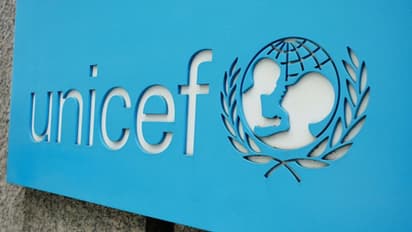Coronavirus: 1 in 9 children infected by COVID-19, warns UNICEF

Synopsis
As schools remain shut and health services continue to be disrupted, vulnerabilities of children and women have increased manifold, warns world body
New York: A new report released by UNICEF has pointed out that children and adolescents account for 1 in 9 of reported covid-19 infections globally, and that the pandemic threatens to cause irreversible harm to their education, nutrition and well-being. The report questions the perception that young people are least affected by the coronavirus.
The report—titled 'Averting a Lost COVID Generation'—warns of significant and growing consequences for children as the pandemic approaches its second year. It says that while symptoms among infected children remain mild, the number of infections is rising and the longer-term impact on the education, nutrition and well-being of an entire generation of children and young people can be life-altering.
“Throughout the COVID-19 pandemic, there has been a persistent myth that children are barely affected by the disease. Nothing could be further from the truth”, said Henrietta Fore, UNICEF Executive Director. “While children can get sick and can spread the disease, this is just the tip of the pandemic iceberg. Disruptions to key services and soaring poverty rates pose the biggest threat to children. The longer the crisis persists, the deeper its impact on children’s education, health, nutrition and well-being. The future of an entire generation is at risk.”
As schools remain shut and health services continue to be disrupted, vulnerabilities of children and women have increased manifold, warned the UNICEF.
The report reiterated that vulnerabilities of women and children had increased, as health services continue to be disrupted and schools shut, denying children free mid-day meals offered at schools for underprivileged children by various nations.
The report also highlighted that in India, 1.5 million school closures have impacted 247 million children enrolled in elementary and secondary education, and 28 million children who were attending pre-school education in anganwadi centres. This is in addition to more than 6 million girls and boys who were already out of school prior to the covid-19 crisis.
“The covid-19 pandemic is undermining nutrition with the worst consequences being borne by young children. In India, despite the commendable change in improved child nutrition indicators, an estimated 20 million children under five years of age are suffering from wasting, over 40 million children are chronically malnourished and more than half of Indian women aged 15-49 years are anaemic. The pandemic has further exposed the fragility of children, less by the virus itself but much more by the indirect and long-term fallout," the report said.
Check the Breaking News Today and Latest News from across India and around the world. Stay updated with the latest World News and global developments from politics to economy and current affairs. Get in-depth coverage of China News, Europe News, Pakistan News, and South Asia News, along with top headlines from the UK and US. Follow expert analysis, international trends, and breaking updates from around the globe. Download the Asianet News Official App from the Android Play Store and iPhone App Store for accurate and timely news updates anytime, anywhere.